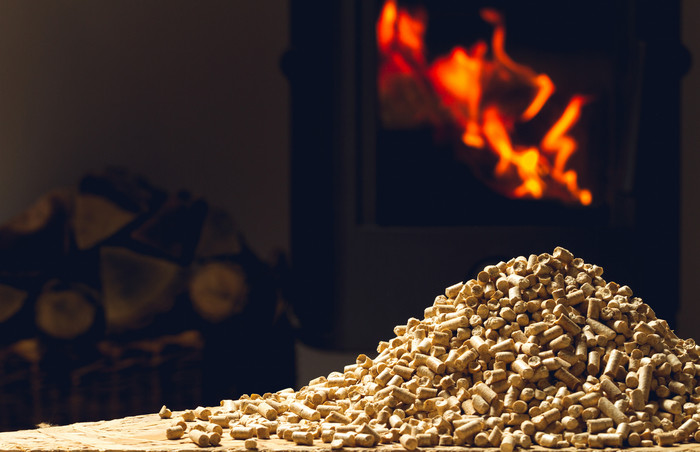Easy to use and store, usable in a vast range of heating systems (from pellet stoves to centralized boilers), pellets have become the main source of domestic heating for over two million Italian families in recent years. And if the increase in prices linked to expensive energy has also affected pellets, bringing the price per bag to double the average price, the latest news are all positive and finally leave room for a trend reversal.
An increasingly competitive option
Il The growing success of pellets is due to various reasonsamong which:
- the increase in production capacity, which over time has made it more cost-effective
- the dissemination, in various European countries, of incentive policies to promote their use
- the fact of being a renewable and clean energy source (derived from biomass such as wood and agricultural residues, allows for a reduction in carbon dioxide emissions).
All of this has made pellets an increasingly competitive option compared to other energy sources, such as gas and oil. To these reasons are now added two other no less important ones: the VAT reduction on pellets from 22 to 10% and the approval of new certification standardswhich corresponds to good news on one side on the front economicon the other on that of the quality. Let’s see in detail what it is.
Reduction of VAT on pellets from 22 to 10%
Until today, Italy was among the countries with the highest VAT rate applied to pellets: 22%. A percentage which, together with the increase in the cost of raw materials, has had a significant impact on Italians’ heating costs.
The 2023 Budget Law, approved in recent months and now in force, instead establishes a new VAT rate on pellets: 10% instead of 22%. A reduction of 12 percentage points, which significantly affects the cost of the final product.
The measure, aimed at containing the cost of energy and supporting renewable sources, was strongly supported by AIEL (Italian Agroforestry Energy Association), welcomed by operators in the sector, and naturally by citizens.
New certification standards: better protected consumers
As for the second novelty, let’s start by saying that the revision of the standards concerns the ENplus® certificationi.e. the set of qualitative parameters that certify around 80% of the pellets sold in Europe for domestic heating.
The ENplus® standards were developed by the European Pellet Council (EPC) to ensure that pellets meet certain quality criteria, divided into “classes” that measure their diameter, length, water content (humidity), ash, mechanical durability, bulk density , calorific value and additives.
They also establish the requirements necessary for companies to obtain the certificate, the requirements for using the ENplus® mark and those relating to certification bodies.
The review process of these standards, launched in 2018 to adapt them to the current market framework and environmental standards, was conducted by a working group made up of public authorities, industry and consumer representatives. In the final review committee, Italy was present with 3 participants out of the 15 overall.
The overhaul was completed after four years of work and the new standards have been in force since 1 January 2023While the expected adjustment time is 1 year (this means that companies certified according to the old criteria will be able to comply by 1 January 2024).
The set of rules is very complex and detailed. Below, we summarize some of the innovations that most closely affect consumers.
Better pellet quality
As regards the quality criteria relating to pellets, the new ENplus® standards provide for three further classes, which require indication of: the particle density, the presence of fine particles (meaning by fine particle a fragment of pellet with a length between 3 ,12 and 5.6 mm) and the percentage of pellets shorter than 10 mm.
These classes are in line with the revision of the ISO 17225-2 technical standard, which has already been in force since June 2021. All other classes, with the related parameters, remain unchanged.
Greater traceability of pellets and transparency in controls
The new ENplus® standards stipulate that each bag of pellets must be stamped with a serial number indicating the company responsible for packaging, the date, the site and the production batch. The purpose of this standard is to facilitate the identification of non-compliant products within the supply chain: to counter the placing on the market of non-certified pellets and reduce the possibility of fraud.
Finally, in the section relating to certification and analysis bodies, the new standards introduce some changes to implement the integrity of the system, make the controls on the activities of the National ENplus® Offices more effective and ensure the uniform application of the certification requirements.
